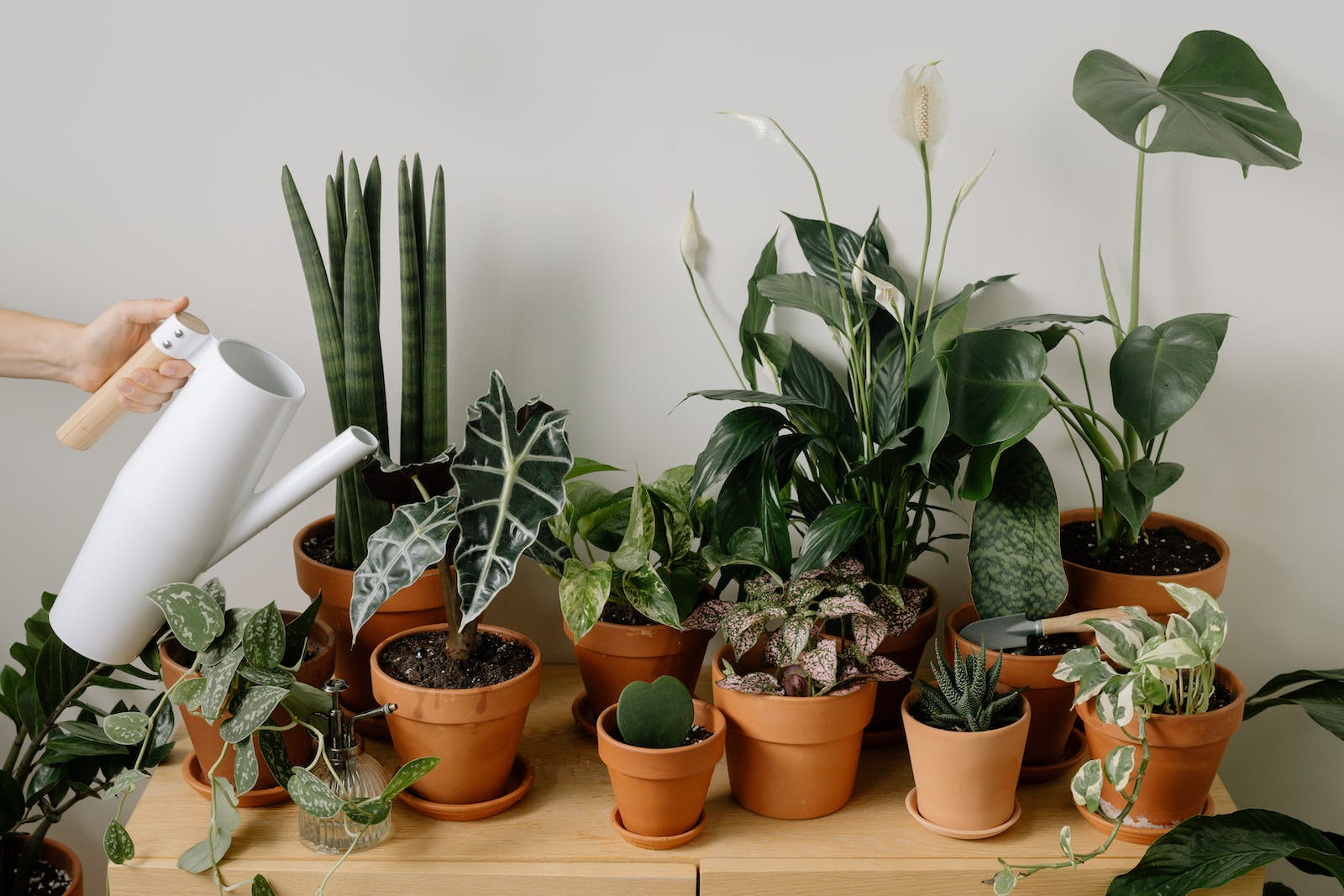
Indoor plants that can help with depression
What indoor plants help with depression?

Indoor plants are incredible. Not only do they purify the air and beautify indoor spaces, they also relieve psychological and physiological stress.
In a study conducted during the Covid-19 lockdown, people who had indoor plants had fewer symptoms of depression than those who did not.
Another study revealed that indoor plants may reduce mental pressure by suppressing autonomic nervous system activity and diastolic blood pressure in young adults. This is good news to the 280 million people in the world suffering from depression.
While conventional medicines are beneficial, adopting alternative methods like this can keep depression in check.
So what indoor plants have psychological benefits? Here's our list of some of the best for this purpose:
Peace Lily
Paint and cleaning products sometimes release airborne toxins in the home. Flowering plants like the Peace Lily are effective for eliminating them. This leaves your home free from mold, strong chemical scents and acetone. Peace Lilies are easy to care for - indirect sunlight and moisture once a week is all that's required.
Aloe Vera
The word 'versatile' perfectly describes Aloe Vera. It has both anti-inflammatory and air purifying properties. Its anti-inflammatory property makes it a powerful plant for treating skin ailments. And this property has been harnessed by the skin care industry for ages.
Aloe Vera also has air purifying properties that reduce stress, anxiety and depression. To crown it up, Aloe Vera also improves the overall visual appeal of your home.
Snake Plant
Ignore its name, Snake Plants are not harmful. These plants purify indoor air by absorbing airborne toxins. Consequently, your mood, sleep, and energy levels improve. If you consider gardening a chore, you'll love the snake plant. It doesn't require so much attention and will thrive even when you forget to water it.
English Ivy
To combat stale air, try an English Ivy. Through its air purifying feature, it filters toxins from the home, calms the nerves, improves air quality, and promotes a good night sleep .
Jade Plant
In cities, indoor air can be as toxic as outdoor air. Introducing an indoor plant like Jade plant can improve air quality, and improve your mood. Jade plants are succulent plants revered for their exotic-looking foliage.
Chinese Evergreen
Chinese evergreen is considered one of the best foliage plants for getting rid of toxins like benzene and formaldehyde. It suppresses the sympathetic nervous system activity and promotes relaxed and natural feelings.
Bamboo Palm
Add a touch of the tropics to your home and breath better with the bamboo plant. It is a natural humidifier and is exceptional at refreshing the air. Bamboo palm are easy to care for and can thrive in shades.
Flamingo Lily
With glossy foliage, the flamingo lily is a sight to behold. It is a perfect match for any type of home interior due to its look. The flamingo lily is also great at improving mood and helping you relax.
Basil
Basil smells as good as its taste. Its woodsy scent comes from the linalool compound it contains. The basil plant pumps oxygen into the air, thereby improving your mood, while reducing stress and blood pressure.
Ferns
Fern is a decorative plant with foliage suitable for any decor. It is a great plant for getting rid of indoor pollutants. This beautiful plant will brighten any space - living room, bedroom, office - in a decorative vase or in hanging baskets.
Prayer Plants
Reduce psychological stress with the prayer plant. Being a gorgeous plant, it improves the overall visual appeal of a room while improving air quality.
Weeping Fig
One of the best plants for relieving anxiety and depression is the weeping fig. It eliminates harmful toxins and irritants out of the air. Introducing a weeping fig to your home can reduce toxic household chemicals that cause skin, eye and throat irritation.
Rosemary
Popularly known for its role in soups and stews, the rosemary plant has other benefits beyond the pot. It is a powerful tool for relieving anxiety and depression. This incredible plant also has a positive impact on your mood and productivity levels.
Lavender
This aromatic flowering plant is popular for relieving stress, anxiety, and depression. It has a soothing scent that gives a calming effect. If you have trouble sleeping, decorate your bedroom with a lavender plant. This will improve your sleep quality.
Jasmine
The sweet scent of jasmine flowers has a calming and sedating effect. It is a perfect option for people sufferings from insomnia, anxiety, and depression.
Conclusion
Depression is one of the leading causes of disability and contributes significantly to the global burden of disease. Depending on its severity, medical professionals may offer anti-depressant, cognitive behavioural therapy, behavioural activation, and other forms of treatments.
However, simple lifestyle changes like cultivating indoor plants have proven to be quite effective in alleviating stress and combating depression.
They release oxygen, absorb toxin, and positively impact the environment. Consider getting one or more of the indoor plants we listed to keep depression away.
